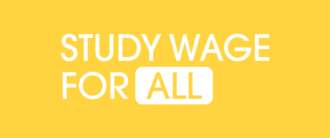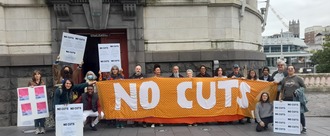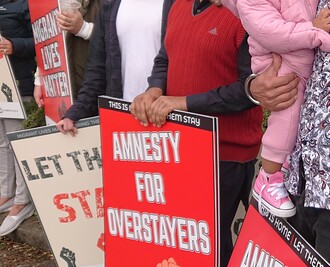-
Massey University: Divest from GenocideIt has come to our attention that Massey University is complicit in genocide. The Massey University Foundation has $64 million invested in managed funds, of which a spokesperson has confirmed $7,105 has been invested in Israeli Government Bonds over the last three months. Within those three months, the Israeli government has bombed schools, attacked health infrastructure, fired missiles into refugee camps, and prevented aid from reaching Gaza, weaponising famine and disease against the people of Palestine. Even prior to your investment, Israel was already engaged in a programme of genocide. As of 6 June 2024, the World Health Organisation reported over 36,000 Palestinians killed— including more than 13,000 children—with more than 10,000 reported missing under rubble and 83,000 injured. Mass graves have been found outside Palestinian hospitals. Even these statistics are being reported as incomplete. These atrocities follow years of dispossession and systematic apartheid inflicted on the Palestinian people by the state of Israel. As of 2022, the people of Gaza already faced “inadequate access to clean water, sporadic electricity provision and [were] without a proper sewage system. Two thirds of the population lived in poverty.” This level of economic and infrastructural destruction at the hands of Israel meant 80% of the population were forced to depend on international aid to survive. Despite UN Resolution 194’s affirmation of Palestinian refugees’ right to return to their homeland, more than 6 million Palestinians live today in the diaspora, barred from their ancestral home. This Nakba (Catastrophe) has been ongoing for more than 76 years. Palestinians have been systematically slaughtered and expelled from their lands to make room for the expansion of illegal Israeli settlements, resulting in a settler-colonial system of oppression “maintained by Israel with the support of the international community.” This is what your investment condones and supports. Massey University, you are complicit in crimes against Gazans, against Palestinians, and against humanity. We, your students, including Palestinian students, pay you to receive an education we wish to be proud of, and you have used that money to help pay for genocide. As academics and university administrators from Gaza have reported after 8 months of incessant bombing, Palestinian civic infrastructure, schools, hospitals, libraries, museums and cultural centres - built by generations of Palestinians - currently lie in ruins. More than 5,479 students, 261 teachers, and 96 university professors have been killed alongside the destruction of all 12 universities in Gaza. Just as you have been cutting courses and jobs across your three campuses for ‘lack of funds,’ you have also been guilty of funding scholasticide in Gaza. Neither outrage, nor disgust are able to convey the full extent of how we feel. We make our demands on the back of a string of student activism across Aotearoa. On the 23rd of May, students from all three campuses joined university students across the country in the National Students Rally for Palestine. On the 14th of June, Massey University students at the Pukeahu campus painted over the walls of the Fine Arts block in protest of Massey University’s lack of stance against the prevailing genocide, leaving the following words addressed to staff: “The students have been asking. Disclose. Divest. Declare. Massey has refused to take a stance. And the staff have remained silent. Massey has defined their response as ‘appropriate’. There is nothing appropriate about ignoring the incomprehensible suffering of Palestinians.” We note the hypocrisy of your investment in Israeli Government Bonds as a signatory of both the UN Sustainable Development Goals, which commits to “Zero Hunger” and “Peace, Justice and Strong institutions,” and the UN Principles for Responsible Investment, which commits to better aligning investment activities with society’s environmental, social, and corporate governance interests. You have clearly failed to uphold a multitude of obligations: to your students, staff, and alumni, to Gazans and all Palestinians at large, and to Te Tiriti o Waitangi. Are you truly acting as a Te Tiriti-led university as you claim? Aotearoa New Zealand, including its universities, including our university, has a responsibility to protect Indigenous people’s rights to sovereignty and self-determination around the world, under the UN Declaration on the Rights of Indigenous Peoples.This means advocating for Tino Rangatiratanga ki te ao - sovereignty for everybody. Both Palestine and Aotearoa have a shared history of injustice under settler colonialism. You have claimed you uphold Te Tiriti to a “new standard of excellence” in “analysis, practice and implementation initiatives across all areas of the university.” Already, at the national level, via Te Mana Akonga, Māori students across Aotearoa have expressed their complete opposition to the colonial state of Israel’s acts of genocide against tangata taketake in Palestine, unapologetically supporting a vocalised statement from tertiary institutions demanding an immediate and lasting ceasefire. A truly Te Tiriti-led university would join Māori students in recognising that there can be no true justice in Aotearoa without justice for Palestine. Universities hold a significant platform and a large amount of power in our country. When you have such a platform with which to be heard, what you don’t say matters just as much as what you do. As such, rather than having a “right to remain silent,” we believe an institution responsible for teaching, producing, and sharing knowledge actually has a responsibility to speak up. It is, after all, enshrined in the Education Act 1989 that you be “the critic and conscience of society.” It is past time that institutions like Massey University use their privilege, their platform, and voice to help FREE PALESTINE.586 of 600 SignaturesCreated by Massey SJP
-
Remove GST on Menstrual Products in New ZealandMenstrual products in NZ are classified as luxury items so they are subject to Goods and Services Tax (GST). However, these products are not luxuries, to half the population (women), these are necessities. GST on menstrual products adds unnecessary financial strain to those who need them, particularly those from lower income households. According to ActionAid, 1 in 3 women and girls in New Zealand between the ages of 15 and 65 have difficulty accessing menstrual products due to their high cost (ActionAid, 2020). By removing the GST on menstrual products, we can help to alleviate period poverty and increase accessibility to these necessary items. Let's make period products more accessible to everyone in New Zealand by urging our government to lift the GST on these crucial products. Please sign this petition to show your support for this cause.220 of 300 SignaturesCreated by Mia Ding
-
Aotearoa Educators for the learners of GazaWe are a group of teachers (ECE, primary and secondary), head teachers, education support staff, principals, and union members from across Aotearoa. We stand together for the right of young Palestinians to life and education. We work alongside learners every day. We consider their struggles, strengths, and the futures that their education lays the foundation for. Consequently, the gravity of what children, students and educators in Gaza are going through hits home. Silence in the face of this unimaginable violence is not an option. The UN Office for Coordination of Humanitarian Activities 15 May 2024 report over 14,500 Palestinian children have been murdered in the past 8 months. Israel’s war on Gaza has created what UNICEF termed as “the most dangerous place in the world to be a child.” Save the Children calculate that 2% of Gaza’s child population has been killed or injured. UN experts are expressing grave concern over a pattern of attacks on schools, universities, teachers and students in Gaza have warned of a ’scholastacide.’ The term refers to the systematic and deliberate obliteration of education. We see this in the following: • Of 625,000 registered students in Gaza no child has had access to formal education for half a year • Relentless bombing has left the majority of school buildings damaged or destroyed • 261 teachers and 95 university professors have been killed • 1.4 million are now using schools and shelters while existing in the jaws of a man-made famine • All 12 universities in Gaza have been destroyed • The targeted destruction of education infrastructure endangers the educational future of an entire generation • Mental health experts are warning that with homes, schools and family life ripped away, the psychosocial impacts on children are likely to be lasting • 460 Palestinian children have been arbitrarily detained by Israel since 7 October, with some reporting starvation and abuse inside detention Palestinians are among one of the most highly literate populations in the world. They are as deserving of dignity and futures as any other learners, anywhere else in the world. To be able to learn, children and students need not only schools, but food, water and basic safety. We know within the rubble and tents our education colleagues are doing all they can to preserve learning in make-shift classrooms, but the destruction must end. We highlight the ongoing funding of UNRWA as part of our call. The New Zealand government just announced it would make its usual scheduled payment of $1 million to the agency. The World Health Organisation emphasised that no entity other than UNRWA has the capacity to deliver the scale and breadth of assistance that 2.2 million people in Gaza urgently need. New Zealand must continue to and expand its funding of UNRWA. Our government has a range of diplomatic options to continue adding to the international pressure to end Israel's genocide in Gaza. Naming and condemning the deliberate bombing of schools and attacks on education by Israel in Gaza is a critical way to show moral leadership. The children of Palestine have a right to not only life, freedom and safety, but education. When these rights are under attack, we must act.1,143 of 2,000 SignaturesCreated by Educators for Palestine
-
Say NO to Youth Offender Boot CampsIt's the responsibility of people in government to make informed, thoughtful decisions that have long-term benefits for the future of the country. They should use the best knowledge, information and expertise available to guide their decisions to ensure all people and communities thrive, especially our young people. By proposing to bring back the youth offender boot camps, this Government is not following the best expertise or knowledge. Youth offender boot camps are proven to be ineffective. When they were trialled in 2008, reoffending rates were 85-87% within two years [2]. Despite the evidence that they do not work, this Government is proposing to bring them back. Youth offender boot camps for young people have been proven locally, and internationally to be unsuccessful in preventing young people from reoffending due to their failure to respond to the long term and complex reasons why young people become involved with the justice system in the first place. Youth offender boot camps punish children who have been failed by an unequal society. They disproportionately impact Māori youth and children who have experiences of homelessness, violence, poverty, mental health issues, or disabilities. Aotearoa’s youth offender boot camps of 2008 were shockingly unsuccessful, with reoffending rates of 85-87% within two years [2]. Children and young people need care and community connection. Removing children from their homes and communities, and punishing them without addressing the root causes of harm – such as disadvantage, challenging circumstances, economic need, and social disconnection – will only cause more harm. Youth boot camps isolate young people from the resources and social connections they need to heal and be supported. Instead of solving problems caused by a lack of resources and services in many communities, our criminal justice system has been designed to lock people away. This hurts all of us, but it especially hurts Māori. This is because systemic racism means that young Māori are more likely to be arrested and convicted for the same crime as non-Māori [3]. Youth offender boot camps will continue this injustice and cause further harm to communities already hurting from ongoing colonisation. The re-establishment of these boot camps will reinforce discriminatory attitudes, and misdirect resources away from solutions that address the root causes of harm. Instead, we can call on our decision makers to make sure young people and children are safe and cared for, by providing stable housing, high quality education, adequate incomes, food, and essential health, mental health and disability services. The punitive approach of youth offender boot camps will not help young people, and will not address harm in our communities. This is why we are calling on the Government to say NO to Youth offender boot camps and say YES to addressing issues of poverty, homelessness, racism, and the mental health crisis. If you agree with us please sign this petition and share it with your family and friends! References and extra reading [1] RNZ. (2024). Boot camps for young offenders are expensive and do not work, critics say. https://www.rnz.co.nz/news/national/510938/boot-camps-for-young-offenders-are-expensive-and-do-not-work-critics-say [2] 1News Reporters. (2024). Youth offender boot camps ``become really abusive” – lawyer. 1News. https://www.1news.co.nz/2024/03/06/youth-offender-boot-camps-become-really-abusive-lawyer/ [3] Rangatahi Māori and Youth Justice Oranga Rangatahi https://iwichairs.maori.nz/assets/PDF/RESEARCH-Rangatahi-Maori-and-Youth-Justice-Oranga-Rangatahi.pdf 95bFM Radio Get Action! Say NO to Youth Offender Boot Camps w Clara Donne: 5 June, 20241,554 of 2,000 SignaturesCreated by The Criminological Society of the University of Otago.

-
Stand with early childhood teachers to save pay parityTeachers, parents, whānau and communities fought for two decades to win respect, recognition and pay parity for teachers in early childhood education. After finally achieving progress with pay parity, the National, ACT and NZ First coalition Government are initiating radical changes in early childhood education. They have signalled funding changes that threaten the pay of tens of thousands of teachers and risk children’s wellbeing by rolling back safety regulations. Removing protections to teacher pay and safety regulations are not new ideas. They are failed ideas that enable unscrupulous employers to cut corners. Ultimately, it is tamariki and staff who suffer when providers have a license to put profit before providing great care and education. We know that for tamariki to have the best start in life they need great foundations and the best possible beginning to their lifelong journey. Every child, no matter where they live or how much their parents earn, should have access to quality early childhood education, Māori medium, and Pacific language services that suit their needs and community, which place culture and identity at the heart. Kōhanga Reo, Puna Reo and early childhood teachers are trained and qualified to make sure our youngest children get the best teaching and learning – just like teachers in kindergartens and schools. Regardless of where our kaiako work, if they work to grow our tamariki and mokopuna they should have their mahi valued equally. Respect our youngest mokopuna in education, their kaiako, and their whānau. Don’t let Minister Seymour attack teacher conditions – the learning conditions for our mokopuna. Take us forwards, not backwards!11,626 of 15,000 SignaturesCreated by NZEI Te Riu Roa
-
Stop the cuts - Protect Our School LunchesSchools are a place where kids go to learn, connect, and grow. But they can’t do this if they are hungry. In Aotearoa, one in five children live with food poverty. And poor nutrition is not limited to kids in food poverty, with only 5 per cent of children aged 0-14 years getting the recommended amount of fruit and vegetables per day. Nutritious food is essential for learning but many kids are missing out on this. This is why Ka Ora, Ka Ako - the school lunch programme was created. It currently offers 230,000 students in about 1,000 of the least advantaged schools lunches, and is a major safety net against food poverty and poor nutrition. If the Government chooses to remove the programme from schools it would rob students of their potential and then we all lose from the missed contribution they can make to our communities. Research from the PISA (Program for International Student Achievement) shows that students who miss meals due to lack of money are two to four years behind their peers who never miss meals in educational achievement(1). Prime Minister Christopher Luxon has said his Government is focused on enhancing school achievement. Cutting school lunches goes against this - and will instead reduce school achievement. Parents of children at schools with free lunches told researchers the lunches helped reduce their grocery bill, increased financial security and helped change their child’s food choices - towards healthier options(2). Principals at schools receiving Ka Ora, Ka Ako say the programme has made a huge and lasting impact on students and losing it would be a tragedy. Principal of Te Kura Māori o Ngā Tapuwae in Māngere East Arihia Stirling said on TVNZ’s Breakfast programme, children are more focused and the number of students having to work to help pay for family basics has fallen as a result of the free lunch programme(3). “What I say to the Associate Minister of Education is do not take the food out of our children’s mouths…this is so needed in the communities we serve.” Seletute “Tute” Mila, principal of Arakura School in Wainuiomata, Lower Hutt, told The Press, Ka Ora, Ka Ako was a “critical programme” which her students loved(4). The same story reported comments by Chisnallwood Intermediate year 8 student Ryder who said the lunches should stay “... mainly because that is a lot of students’ meal for the entirety of the day ... most people don’t have food at home.” Before the lunches were introduced in 2022, Ryder said he struggled to learn “because my brain just got like, ‘oh, I’m so hungry’.“After I ate the lunches I’d always have energy to do stuff.” All students at these schools receive a free healthy lunch which they share together. The provision of tasty, healthy lunches to all the students encourages them to eat nutritious food that will fuel their bodies and minds, and promotes social bonding through sharing a meal together. Students all over New Zealand should have healthy and free school lunches - which are essential to address food poverty and poor nutrition. This is why we are asking the government to keep the free school lunch program, if you agree please sign and share this petition. References (1) https://www.phcc.org.nz/briefing/food-poverty-nz-teens-creating-achievement-lag-four-years (2) https://academic.oup.com/heapro/article/38/4/daad093/7243592?login=false (3) https://www.1news.co.nz/2024/03/05/no-doubt-free-lunches-programme-has-helped-results-principal/ (4) https://www.thepress.co.nz/nz-news/350201994/most-people-dont-have-food-home-students-and-staff-fear-impact-lunch-cuts26,948 of 30,000 SignaturesCreated by Health Coalition Aotearoa
-
Grow the workforce: paid training in healthcare, education, and social work professionsWe are short 700 social workers, 940 psychologists, 1000 teachers, 1,050 midwives, 1,700 doctors, & 4,800 nurses to name a few. Our hospitals, GP practices, schools, mental health & social services are more stretched than ever. Dangerously low staffing levels & overworked professionals make for burnt-out workforces & inaccessible services. This means long waitlists for surgeries or specialist appointments & long wait times in ED. Delayed access to mental health assessments, treatment, crisis support, & suicide prevention. Family harm & child protection services stretched beyond capacity. Large class sizes in schools mean reduced capacity for individual learning needs to be met & homeschooling for parents when teachers are off sick. The ripple effect of workforce shortages is massive. More staff are needed but it’s nearly impossible to complete course requirements with the current cost of living. Students are burning out & dropping out of study at rates of up to 45%. They can’t afford to work for free when rent, food, & power still cost money. - Students training in professions with placement requirements complete between 500 & 2400 hours of unpaid training depending on registration requirements. Medical students complete 20-42 weeks of unpaid placements for 3 years (after a 3yr BSc Health Science). - Students are often required to live or work away from home to complete placements. The cost of double rent & the impact on part-time work opportunities are significant. For students with on-call requirements, maintaining paid work is almost impossible. - Students must cover course related costs such as textbooks, uniforms, immunisations, equipment, travel, parking, supervision, & childcare arrangements. $1000 course costs loans are insufficient to cover these expenses. - Students participate in paid work to pay their bills on top of unpaid placements, often working up to 80 hours a week to make ends meet. Students from backgrounds of hardship or those caring for tamariki/whānau get excluded from these professions as they have limited financial flexibility or capacity to take on high student loans, unpaid labour & course related costs. - Student hardship disproportionately affects Māori & Pasifika because of existing inequities in Aotearoa New Zealand. We need greater diversity & experience to better serve the needs of our communities but without financial support to study our professions are at risk of becoming more short-staffed & less diverse. Post-graduate students Support must also be available for post-graduate students undertaking placements as part of their registration requirements. Currently, postgraduate students are ineligible for student allowance. - Many degrees are completed at a post-graduate level via an applied/professional masters. - Registered psychology professions & psychotherapy are only available at postgraduate level. - Lifetime student allowance limits are significantly lower for those over 40 years of age. - Mature students’ only option is to take on huge student loans & living costs. Working for free while collecting debt is especially prohibitive for students with additional domestic, family, and financial responsibilities. We must incentivise New Zealanders to gain qualifications in registered professions. Tradies receive support through packages like the Apprenticeship Boost and Police are paid to train while provided bed and board. Paid training for our health, education, and social work professionals must become the norm too. The solution! Provide students with a universal, non-repayable, annually increasing stipend. We are calling on the government to pay students a universal stipend while they train in registered professions with compulsory placement requirements. This is non-repayable & should increase annually to reflect the year-on-year increase in placement hours, skill development, & responsibilities. First year undergraduate programs with placement requirements must start on at least equivalent to the training wage for Aotearoa New Zealand. Postgraduate students should start on at least equivalent to the living wage to reflect their existing qualifications & professional experience. What is a stipend? A stipend is not a wage. It is a tax-free fund to support students to cover living costs, enabling them to fully engage with their studies & placement requirements. A stipend does not make students employees. It will not affect training, practice, or supervision requirements. Year 1: Training wage (tax-free stipend) $32,084.64* Year 2: Minimum wage (tax-free stipend) $39,312.72* Year 3+: Living wage (tax-free stipend) $44,008.58* *Take home amount students would receive at the current rates. These should be reviewed & adjusted annually in line with equivalent wage rates. Additional allowances should be available for on-call requirements, mandatory therapy, & supervision costs. Please sign & share this petition for paid training in healthcare, education, & social work. Funded workforce development will improve accessibility to training, increase the diversity of staff, & enable better access to quality services for whānau & community. Follow Paid Placements Aotearoa’s advocacy on: Facebook https://www.facebook.com/PaidPlacementsAotearoa Instagram https://www.instagram.com/paid.placements.aotearoa/ LinkedIn https://www.linkedin.com/authwall?trk=bf&trkInfo=AQGfBgJOR0gsnwAAAY0K0NJQ4VSzObpB_5YpuuKfAs4gSu9gxg1BfhglPpZqhKz9ODj2xKAUWfio4DrWWjGr5yXqlQNvywhjI4U3p6L5VKxhaSXw35UEoahOPDPewg04X9Xqqrw=&original_referer=&sessionRedirect=https%3A%2F%2Fwww.linkedin.com%2Fin%2Fpaid-placements-aotearoa-nz-236384272%2F20,400 of 25,000 SignaturesCreated by Bex Howells
-
Open Letter: Aotearoa New Zealand's Universities to Stand in Solidarity with PalestineWe, the students, staff, and alumni of Aotearoa New Zealand’s Universities, urge you to release a joint statement on behalf of our Universities standing in solidarity with Palestine. We call for this statement to condemn Israel’s genocidal attacks on Palestinians and call for an immediate ceasefire and end to Israel’s illegal occupation of Palestine. To understand why this joint statement from our Universities is urgently needed, it is important that you acknowledge that Palestine has been subject to Israel’s settler-colonial violence for the past 75 years. As an independent UN expert reported last year, for 55 of these years, “the Israeli military occupation has prevented the realisation of the right to self-determination of the Palestinian people, violating each component of that right and wilfully pursuing the ‘de-Palestinianisation’ of the occupied territory.” This expert also affirmed that Israel's endeavours in Palestine are “illegal”, amount to “gross violations of international law, including racial segregation and subjugation” and are “indistinguishable from settler-colonialism.” Similarly, a UN-appointed Commission of Inquiry into Israel's illegal occupation of Palestine concluded last year that “by continuing to occupy [Palestinian] territory by force, Israel incurs international responsibilities and remains accountable for violations of the rights of the Palestinians, both individually and as a people.” On 7 October, Israel’s Prime Minister, Benjamin Netanyahu, stated that the Palestinians of Gaza would pay an “immense price” for the actions of Hamas fighters. Israel’s president, Isaac Herzog, also stated that the Israeli government holds the entire Palestinian population of Gaza responsible for the actions of militant groups, and should therefore be subject to collective punishment and unrestricted use of force, saying: “It is an entire nation out there that is responsible.” Since 7 October, Israel, with the support of the United States, has killed at least 9,061 people in Gaza, including at least 3,760 children as of 2 November. Israel’s attacks have also displaced at least 1.4 million people in Gaza, with approximately 629,000 of them seeking refuge in 150 UN emergency shelters. It is also estimated that at least 2,200 people are currently buried under the rubble of destroyed buildings in Gaza. A group of independent UN experts have repeatedly stated that Israel’s attacks on Palestinians are genocidal and constitute war crimes and violations of international law, remarking: “We remain convinced that the Palestinian people are at grave risk of genocide. The time for action is now. Israel’s allies also bear responsibility and must act now to prevent its disastrous course of action. The Israeli airstrike on a residential complex in the Jabalia refugee camp is a brazen violation of international law – and a war crime. Attacking a camp sheltering civilians including women and children is a complete breach of the rules of proportionality and distinction between combatants and civilians.” In terms of the reasons for Israel’s genocidal attacks on Palestinians, international human rights lawyer Craig Mokhiber noted in his resignation letter from the UN Office of the High Commissioner for Human Rights that this “textbook case of genocide” is “rooted in an ethno-nationalist colonial-settler ideology” which “has entered its final phase, toward the expedited destruction of the last remnants of indigenous Palestinian life in Palestine.” As a collective of Aotearoa New Zealand's University communities, we want to highlight that a key part of Israel’s genocide against Palestine is its epistemicide due its targeted attacks on Universities in Gaza. These attacks are not only murdering Palestine’s University communities, they are also systematically destroying the rich knowledges, histories and literatures of Palestine, without which our world, and our understanding of it, will forever be incomplete. To be clear, Universities that fail to condemn these attacks can no longer claim to be genuinely committed to the pursuit of knowledge and any meaningful vision of a local and global scholarly community. In our Universities, we teach and learn about the genocidal violence that has occurred and is still occurring around the world - from the Holocaust against Jewish peoples in Europe to the Crown’s ongoing violence against Māori here in Aotearoa New Zealand. During these lessons, we often ask how so many people, including those with great influence and power, can enable such violence and stay silent when marginalised groups are being dehumanised and murdered. Now, many of us no longer have to ask this question, as we are seeing this enabling and silence in real time around the world, including here in Aotearoa New Zealand. Not only is our country's media and government failing to condemn Israel’s genocidal violence, each of you, as the leaders of our Universities, are failing to do so as well. We note that some of you have released statements incorrectly framing this genocide as “escalating conflict in the Middle East”, and others among you are choosing to remain silent. Some might say that it would not make any difference if our Universities in Aotearoa New Zealand stood in solidarity with Palestine. However, the reality is that our Universities play a crucial role as the “critic and conscience of society" which means your enabling statements and silences are helping to allow this genocide to continue by making it appear like we, as communities of learners, teachers, researchers and professionals, deem it acceptable. *Full letter here: https://www.pantograph-punch.com/posts/university-communities-call-for-solidarity-with-palestine*2,991 of 3,000 Signatures
-
Make tertiary education accessible: study wage for all1. Learning is an inherently valuable contribution to society. To genuinely acknowledge education as a public good, we must value not only our educators, but also the students. 2. The current means-testing of the student allowance scheme exacerbates student poverty and is too flawed to truly ensure equity and fairness to marginalised groups. 3. We want to stop the downward trend of students dropping out because they can’t afford to keep studying. We need more students, including those who otherwise could not afford to study, in tertiary education so we have citizens prepared for an increasingly complex world. 4. Tertiary education is not just an investment into the individual, but to their whānau, community and Aotearoa. 5. Pre-1990, Aotearoa had relatively universal student allowances, and free tuition. Overseas, since 1996, Denmark has provided a universal student allowance too (which was 860 euros per month in 2022). Our own history and Denmark prove that a Study Wage for All is entirely possible. Normalised student poverty is not inevitable, it is a political choice. There are no more excuses to keep putting student poverty on the back burner. Barrier-free education is a public good that benefits our collective future. A Study Wage for All is critical to achieving this. Reference: * Calculations for a Universal Student Allowance prepared by the Parliamentary Library using HYEFU 2022 (at p148), the Ministry of Social Development’s Monthly Benefits Update – March 2023, current minimum wage rates, and StudyLink Statistics (2022).1,832 of 2,000 SignaturesCreated by OUSA and VUWSA

-
Subsidise degrees that lead to Mental health jobsAs of October 2022, employment data shows New Zealand needs 643 Mental Health staff, including 120 Psychiatrists, 408 mental health nurses and 115 Clinical Psychologists. New Zealand needs Mental Health workers, which starts with degrees. New Zealanders should not struggle to access Mental Health services, in 2017 it was found that 90 children a day were being referred to the Child and Adolescent Mental Health Service (Camhs), and the number of severe cases has been increasing. In 2016 1824 children were rejected or quickly referred from Camhs. This is a real problem as we had 538 people die from suicide in the 2021 to 2022 financial year. The 1.9 billion dollar budget for Mental Health has not seen any change to accessibility in specialist Mental Health services in the last five years. The vision for this subsidy is to increase the number of people taking degrees. that lead to mental health jobs. This could lead to an increase in people going into Mental Health jobs and decrease the shortage of Mental Health workers in New Zealand. A subsidy for study would incentivise students to study mental health by relieving the financial burden of study (which for a practising clinical psychologist is 6 years, and much longer for a psychiatrist). In Australia, the NSW Labor Government has recently announced it will invest $97 million in health study subsidies to attract staff and retain talent in the public health system, New Zealand should be following in their footsteps and investing similarly.261 of 300 SignaturesCreated by Millicent Dickenson
-
Wayne Brown: Don't Cut Community Services!NO CUTS Wayne Brown’s Budget 2023/24 is proposing to cut funding to crucial community support services during a cost of living and climate crisis. The people of Auckland are deeply concerned about the proposed budget. We understand that the Council is facing financial challenges, but we urge Auckland Council to reconsider these cuts as they will have a severe impact on the community. “Cutting regional community focused initiatives … of all groups working with Māori, Pasifika, youth, refugee, new migrant and rainbow communities.” - Page 30, Te Wāhanga Tuatoru: Te Pūtea e Marohitia Ana, Annual Budget Proposal 2022/23. We can see the budget has targeted marginalized communities, yet does not suggest cuts to industry and business whatsoever. The proposed budget cuts will have far-reaching consequences for all Aucklanders, but especially our most vulnerable residents, including children, the elderly, the working poor, and those with disabilities. Cuts to climate change, social services, community venues, public transport, arts,and education will have a devastating impact on these communities, and protesters are determined to make their voices heard. The proposed cuts to community services, including libraries, community venues and centers, youth and homelessness, early childhood education, Arts and culture, water quality and public transport, will have a negative impact on the quality of life for many Auckland residents. These services are essential for the well-being of our community and provide opportunities for social interaction, education, and access to essential resources. Furthermore, the proposed cuts to environmental initiatives, including park maintenance and waste management, will have a detrimental effect on our environment. These initiatives are critical to the sustainability of our city and the protection of our natural environment and resources. We understand that difficult decisions must be made regarding the budget, but we urge the Council to prioritize the needs of the most vulnerable. We believe that alternative solutions and a better budget is possible. The Auckland council’s feedback report suggested that the majority of Aucklanders reject this proposed budget, and it is not suited to serve Auckland residents. The sale of the airport shares is not necessary or helpful and will take Auckland backwards. The airport shares are an important revenue stream, the airport is increasing in value, and it is an asset that the Council can borrow against. The 18% shareholding is also an opportunity for public voice on the future of the airport, a strategic asset - and it is important that the Council holds onto public control in the face of climate and health emergencies. The Community Coalition against the Cuts demands that Auckland Council, Mayor and Councilors listen to Aucklanders. Consider and implement the voices of Aucklanders who took their time to give their feedback. We fully reject this proposed budget, and we demand the following: 1- NO CUTS TO REGIONAL & COMMUNITY SERVICES 2- INCREASE RATES & DEBT 3- NO SALE OF AIRPORT SHARES The super-rich must pay for this budget deficit, not the most vulnerable. We demand that any shortfall in the Council's books should be filled through increased rates on big business, and charges on luxury items such as private helicopters and super-yachts, not cuts which hit the poorest hardest. We need to be expanding services, not cutting them. We demand that the Council expands public transport, making buses and trains free and frequent, and takes more action on climate change amidst a climate crisis. We demand more funding to tackle poverty and homelessness. Therefore, we call on Auckland Council to reconsider the proposed budget cuts and to find alternative solutions that do not compromise the well-being of our community and our environment. We fully reject this budget we will not sit by quietly. We say, NO CUTS! Community Coalition Against Cuts252 of 300 SignaturesCreated by Community Coalition Against Cuts

-
Amnesty for OverstayersEstimates are that Aotearoa has approximately 14,000 people without any visas or legal status. These are migrants, their whānau and tamariki who have been living in fear during some of the worst challenges we have faced as a country. They are victims of our regressive immigration policies, not criminals. Overstayers deserve to lead a life with dignity and respect. They deserve to be safe and deserve to be helped, especially during hard times like the Northland floods and Cyclone Gabrielle. With the current system, overstayers have hesitated to seek medical help such as covid tests and covid vaccination, for the fear of being reported to authorities and subsequently being deported. And now many of them are flood victims afraid of seeking assistance provided by the government. This is potentially a dangerous and unsafe health situation, not just for the victims but for the entire communities surrounding them. Many of our overstayers are children of parents who do not have lawful status. It is harsh and unfair to punish the children by depriving them of access to needed services such as health care providers, education and safety services. Researchers at UNITEC published an excellent report highlighting the plight of overstayers and their families – the stresses are multi-fold and affect their mental well-being. The solution proposed by researchers is also policy change and legal status for the overstayers. Link to the full report: https://www.unitec.ac.nz/sites/default/files/public/documents/Tuvalu%20project%20report%20-FINAL-13.12.2021.pdf An amnesty for all overstayers regardless of their country of origin is the need of the time.While we appreciate that the Prime Minister is going to look at the petition regarding Pacific overstayers, he needs to be inclusive and act sooner than later. We ask the Prime Minister to give overstayers work rights and their children access to public education, allowing them to lead a life of dignity.1,156 of 2,000 SignaturesCreated by Anu Kaloti


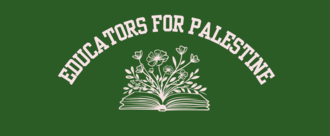
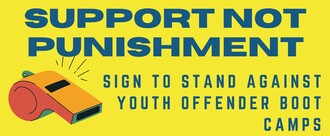

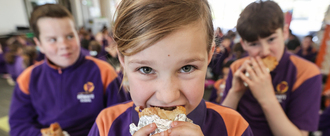
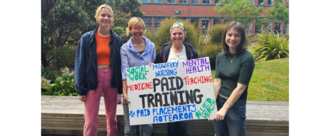.png)

